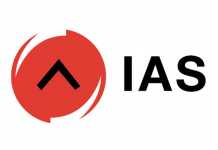With South Africa’s economic position in a precarious state, particularly since the downgrade to junk status, many businesses may find themselves in a pickle over credit management. Chief executive of Debtsource, Frank Knight, says that with the ratings downgrade, banks are likely to clamp down on providing financing and loans, propelling companies to seek credit from their suppliers to strengthen their business opportunities. That has massive implications which need to be fully understood.
“Companies often rely on banks to finance their businesses or obtain trade debtor finance. Usually it is a combination of both. When companies can’t get financing from those sources; the demand for trade credit increases. While that in itself is not an issue, it is paramount that companies make sure that the credit granting process is well managed,” says Knight.
With companies exposed to an increasing demand for credit facilities and extension to their customers, Knight emphasises that creditors really need to know what they are doing as it’s an ugly reality that many companies go under while showing a profit. “Often, the problem is that businesses are unable to get their customers to pay timeously. If businesses get their credit decisions wrong even though they’ve got everything else right, the businesses could suffer as a result,” he adds.
Knight points out that there are two key considerations that businesses need to do differently during this time.
“Firstly, companies need to look at their own credit processes and how they extend trade credit to other companies. This involves doing a thorough check on who you are dealing with, setting appropriate credit limits and making sure that there are clear policies, and adherence to them, on credit extension,” says Knight.
“Secondly, companies need to maximise their terms of payment. If a business has a R200 000 account with its supplier; it would serve it well to negotiate payment terms from 30 to 60 days. By so doing, theoretically it can add an extra R200 000 into its cash flow which can go a long way to enhance business activities and help entities stay afloat during this negative economic cycle.
Insurance implications
While it is not common that insurance cover for trade credit would increase during periods of economic turmoil, there are instances where increases may be a consideration. Typically, insurers are more loathe to approve transactions under such circumstances due to the belief that there may potentially be more bad debts in the market, so they tend to be very cautious about the insurance applications they approve.
“In the current economy it is fair to say that it is going to be more difficult to get trade credit insurance but not necessarily more expensive. However, recent developments in the credit insurance industry mean that you can now select individual debtors to insure rather than a collective policy, and so business transactions that pose an initial risk can be covered separately to the rest of your clients. Options available for example in such cases would be the selected debtor insurance offering recently announced by The Hollard Insurance Company.”
The credit extension facility relies heavily on how successfully the trade credit is managed throughout. “It doesn’t have to be daunting – work with experts who can help you manage the process from start to finish, as well as advising you on the best credit insurance policy to keep you secured,” concludes Knight.
If you need help to manage your trade credit process, visit www.debtsource.co.za or call 011 348-7000.























































































